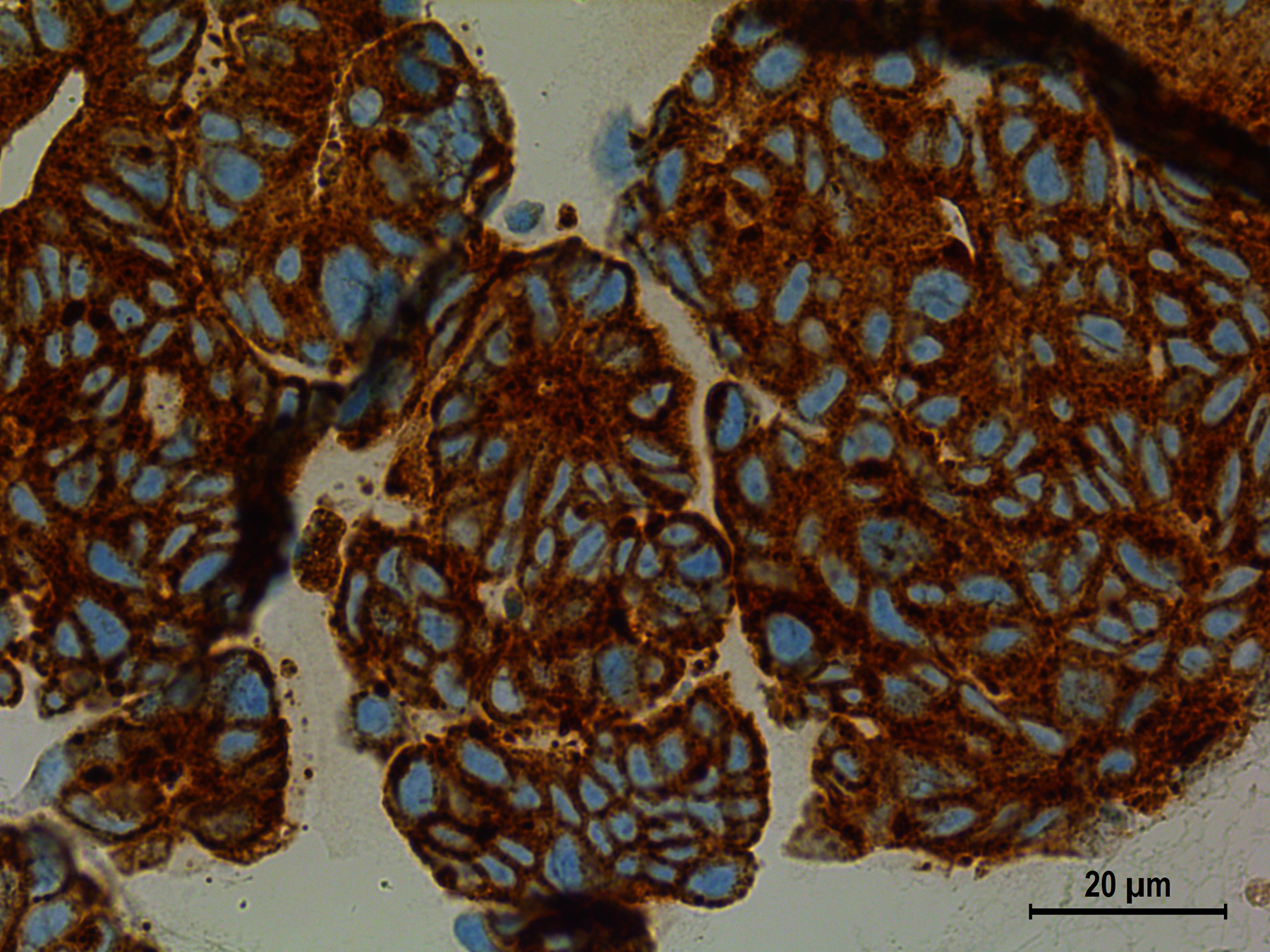
Swiss-led research team uncovers key to treatment-resistant prostate cancer

An international research team led by the University of Bern has identified a key factor that causes some advanced prostate cancer to become resistant to hormonal therapy, unlocking new pathways to treatment.
The findings published in Nature CommunicationsExternal link shed light on “epigenetic” changes in cells that cause some aggressive forms of prostate cancer to become resistant to hormone therapy. These changes do not involve alterations of the DNA genetic code but often regulate gene activity and expression.
Prostate cancer is the second most common cancer and the fifth cause of cancer-related death in men worldwide. Most localized prostate cancer can be treated with surgery and radiotherapy, but metastatic cancer typically relies on hormone therapies. However, resistance to this therapy often develops.
To date, most studies on treatment resistance have focused on changes in the DNA sequence in cancer cells – genetic mutation. However, cancers can also become resistant to treatment through changes in cell identity. This “linear plasticity” helps them evade treatment.
As studies show that changes in the DNA are not sufficient to cause such a transformation in cell identity, a research team led Dr. Mark Rubin at the Bern Center for Precision Medicine sought to understand what other changes occur in cancer cells could enable this identity shift.
The research team found “epigenetic” changes could influence the way a cell uses the information contained in its DNA.
“Cancer cells can hijack this machinery to favor their growth over the surrounding normal cells,” explained Rubin in a statementExternal link.
The research team focused on one epigenetic regulator, called the SWI/SNF complex, which remodels a cell’s DNA and can cause the cells to grow and change. Dr. Rubin’s team observed that several prostate cancer cell lines are dependent on the SWI/SNF complex for their growth.
The Bern Center for Precision Medicine, a joint initiative between University of Bern and Insel Hospital, was launched in 2019 and explores precision medicine, especially in areas where there are no standard of care options.

In compliance with the JTI standards
More: SWI swissinfo.ch certified by the Journalism Trust Initiative
















![The four-metre-long painting "Sonntag der Bergbauern" [Sunday of the Mountain Farmers, 1923-24/26] had to be removed by a crane from the German Chancellery in Berlin for the exhibition in Bern.](https://www.swissinfo.ch/content/wp-content/uploads/sites/13/2025/12/01_Pressebild_KirchnerxKirchner.jpg?ver=cb688ed5)














You can find an overview of ongoing debates with our journalists here . Please join us!
If you want to start a conversation about a topic raised in this article or want to report factual errors, email us at english@swissinfo.ch.